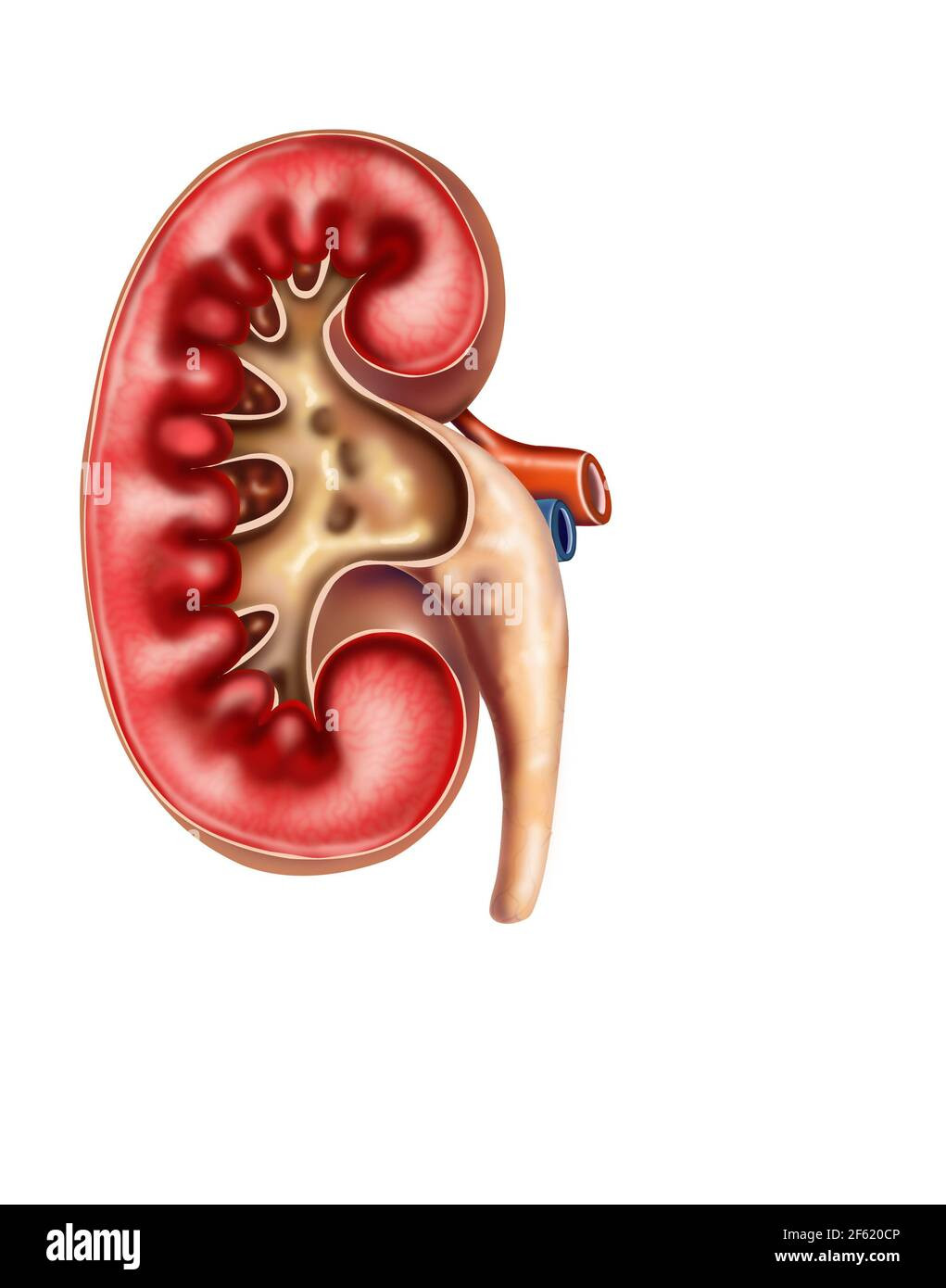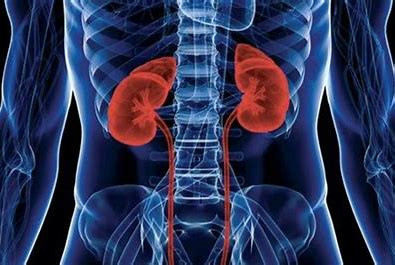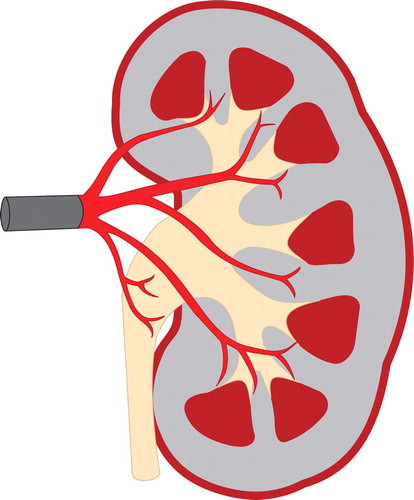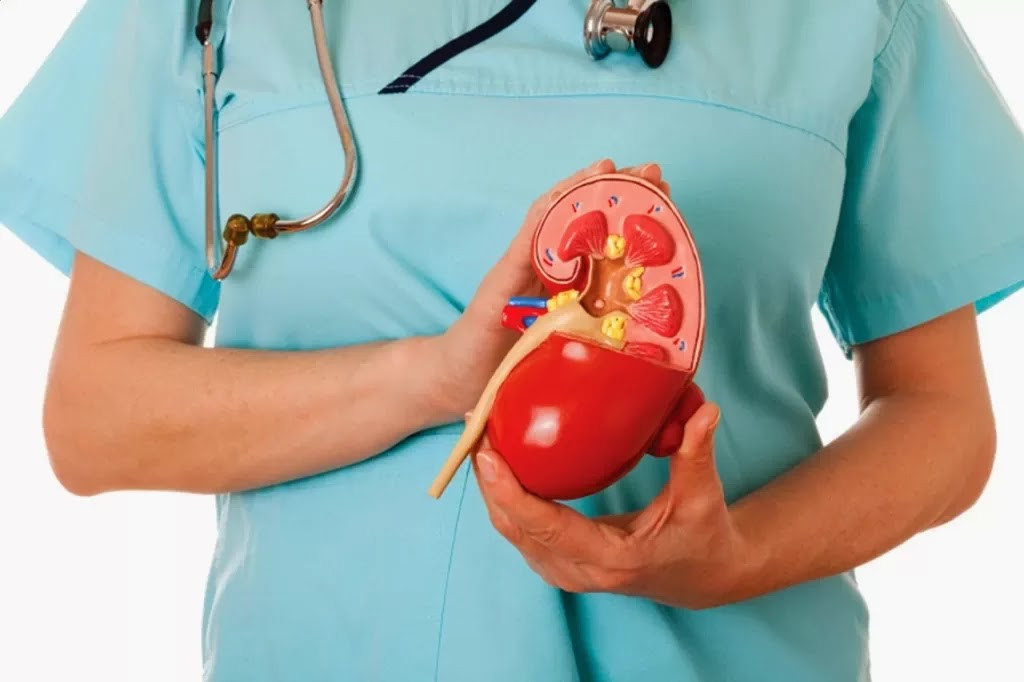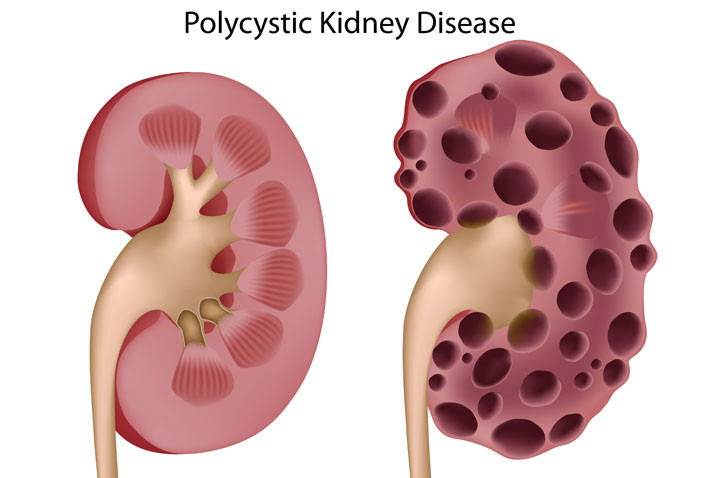Definisi
Glomerulonefritis adalah peradangan yang terjadi pada glomerulus, struktur di dalam ginjal yang terbentuk dari kumpulan pembuluh darah kecil. Tautan pembuluh darah yang terbentuk dalam ginjal memiliki fungsi untuk menyaring darah dari sisa limbah metabolisme dan untuk membuang cairan yang berlebih di tubuh. Nantinya, semua cairan dan zat sisa tersebut akan keluar dalam bentuk urine. Apabila glomerulus mengalami kerusakan, akan terjadi gangguan pada kerja ginjal, dan bila tidak teratasi maka seseorang bisa mengalami gagal ginjal.
Glomerulonefritis kronis didefinisikan sebagai bentuk peradangan dari struktur glomerulus yang terjadi selama bertahun-tahun, biasanya terjadi pada hampir semua glomerulonefritis akut. Pada glomerulonefritis akut, peradangan glomerulus berlangsung tiba-tiba dan sebentar saja. Bila tidak ditangani, kerusakan glomerulus tidak bisa lagi diperbaiki, dan dapat terjadi penyakit ginjal kronis, gagal ginjal stadium akhir dan penyakit kardiovaskular. 1% anak-anak dan 10% orang dewasa yang mengalami glomerulonefritis akut, penyakit mereka bisa berkembang secara progresif menjadi glomerulonefritis kronis.
Glomerulonefritis kronis adalah penyebab ketiga dari terjadinya gagal ginjal kronis dan ditemukan pada sekitar 10% pasien ginjal yang sudah memerlukan cuci darah (dialisis). Penyebab pasti gagal ginjal kronis pada pasien dengan glomerulonefritis belum diketahui pada beberapa pasien. Berdasarkan data di Jepang dan negara-negara asia, penyakit glomerulonefritis kronis terjadi pada 40% pasien yang menjalani cuci darah.
Penyebab
Penyebab dari glomerulonefritis bisa berasal dari ginjal itu sendiri, atau terjadi karena berbagai penyakit lainnya. Berbagai penyakit tersebut juga bisa memengaruhi bagian tubuh lain sebelum akhirnya mengganggu kerja ginjal. Umumnya, penyebab dari glomerulonefritis kronis sama dengan kondisi yang menyebabkan glomerulonefritis akut. Namun, peradangan ginjal pada glomerulonefritis akut tidak tertangani, berkembang selama bertahun-tahun sehingga terjadilah glomerulonefritis kronis.
Perlu diingat bahwa pada sebagian besar orang dengan glomerulonefritis kronis, penyebab penyakitnya tidak bisa diketahui. Berikut adalah sejumlah kondisi medis yang diteliti dapat menyebabkan glomerulonefritis kronis, yaitu:
- Nefropati IgA, gangguan ginjal yang terjadi ketika ada penumpukan antibodi IgA dalam ginjal.
- Nefritis herediter, spektrum penyakit yang menyebabkan gangguan ginjal progresif, penurunan pendengaran, dan masalah penglihatan, biasanya ditemukan pada laki-laki usia muda.
- Infeksi
Faktor Risiko
Faktor risiko yang meningkatkan terjadinya glomerulonefritis kronis di kemudian hari adalah:
- Riwayat glomerulonefritis akut
- Penyakit autoimun tertentu (kondisi dimana sel kekebalan tubuh berbalik menyerang sel tubuh yang sehat)
- Riwayat kanker
- Terpapar beberapa senyawa pelarut hidrokarbon
- Faktor genetik, walaupun masih tidak diketahui secara pasti, glomerulonefritis kronis terkadang diturunkan pada keluarga.
Gejala
Glomerulonefritis kronik bisa terjadi tanpa menimbulkan keluhan dan gejala klinis yang dirasakan oleh pasien, sehingga kondisi ini bisa tidak ditemukan dalam waktu yang lama bagi sebagian besar orang. Gejala yang muncul juga bervariasi, tergantung derajat keparahan penyakit. Bila muncul gejala, keluhan dan gejala yang bisa dirasakan pasien antara lain:
- Pembengkakan di wajah atau pergelangan kaki
- Urine berbusa banyak seperti cucian air piring saat buang air kecil
- Urine bisa disertai darah atau terlihat memerah
- Sering buang air kecil di malam hari
- Nyeri perut
- Tekanan darah tinggi
Diagnosis
Wawancara dan Pemeriksaan Fisik
Saat Anda datang ke fasilitas kesehatan, dokter akan bertanya terkait keluhan dan gejala yang Anda rasakan secara detil. Dokter juga akan menanyakan riwayat penyakit Anda sebelumnya, serta obat-obatan yang sudah Anda minum untuk mengatasi keluhan yang Anda miliki. Anda perlu mengutarakan gejala-gejala tersebut selengkap mungkin. Informasi ini penting bagi dokter dalam rangka menegakkan diagnosis medis tertentu. Dokter juga akan melakukan pemeriksaan fisik sesuai dengan keluhan yang Anda jelaskan. Pada glomerulonefritis kronis, bisa ditemukan tekanan darah tinggi dan pembengkakan pada area wajah atau tungkai bawah Anda.
Pemeriksaan Penunjang
Pemeriksaan penunjang juga memiliki peran dalam menegakkan atau memastikan diagnosis glomerulonefritis kronis. Dokter bisa melakukan pemeriksaan laboratorium, pemeriksaan pencitraan, dan pemeriksaan tambahan lain untuk melihat kondisi Anda.
Pemeriksaan laboratorium yang umumnya bisa dilakukan meliputi:
- Pemeriksaan darah lengkap, kadar elektrolit, dan kadar albumin dalam tubuh.
- Pemeriksaan urine lengkap bisa dilakukan untuk melihat bila ada sel darah merah, protein berlebih, tanda infeksi, dll. dalam urine Anda.
- Pemeriksaan fungsi ginjal seperti kreatinin dan ureum darah berperan untuk melihat kondisi ginjal, bila ginjal masih bisa menjalankan fungsinya dengan baik atau sudah terdapat penurunan fungsi karena peradangan glomerulus yang meluas.
- Laju filtrasi glomerulus, merupakan pemeriksaan untuk menilai dan memantau fungsi ginjal dalam menyaring zat sisa metabolisme tubuh.
Sementara itu, pemeriksaan pencitraan seperti USG dan CT scan ginjal juga bisa dilakukan untuk melihat bagaimana ukuran dan bentuk ginjal, apakah ada kelainan atau tidak.
Pemeriksaan biopsi adalah pemeriksaan yang paling akurat namun paling invasif untuk mengonfirmasi diagnosis, membantu menentukan penyebab glomerulonefritis, dan menentukan seberapa berat derajat penyakitnya. Dokter akan memasukkan jarum melalui perut ke dalam organ ginjal untuk mengambil sampel jaringan ginjal. Sampel jaringan ini akan dianalisa untuk melihat apakah ada tanda-tanda kerusakan pada organ ginjal.
Tata Laksana
Tidak ada terapi khusus pada glomerulonefritis kronis. Pasien sangat disarankan untuk mengawasi berat badan serta asupan cairan, protein, kalium, dan garam yang didapat dari makanan yang mereka konsumsi. Mengurangi asupan protein dan garam serta membatasi cairan dikatakan bermanfaat untuk menghambat perburukan ginjal. Pasien juga harus mengontrol dan mengurangi tekanan darahnya untuk mencegah perburukan kondisi penyakit.
Dokter bisa memberikan obat penurun tekanan darah, suplemen kalsium, serta obat diuretik untuk mengatasi pembengkakan pada wajah dan pergelangan kakinya. Semua obat yang berpotensi dapat menganggu fungsi ginjal perlu diatur kembali dosisnya bergantung pada kondisi keparahan dari glomerulonefritis kronis. Pada kondisi dimana glomerulonefritis kronis berkembang menjadi gagal ginjal, tergantung seberapa berat penyakitnya, Anda mungkin memerlukan terapi cuci darah atau bahkan transplantasi ginjal.
Komplikasi
Komplikasi yang dapat muncul secara umum dapat memberikan indikasi adanya kebutuhan untuk dilakukan cuci darah segera. Beberapa komplikasi yang bisa terjadi yaitu:
- Asidosis metabolik, gangguan elektrolit serius yang ditandai dengan ketidakseimbangan asam-basa di tubuh.
- Edema paru, kondisi penumpukan cairan di dalam paru dan menyebabkan kesulitan bernapas.
- Perikarditis, peradangan pada lapisan yang menutupi permukaan jantung.
- Ensefalopati uremikum, gangguan otak yang terjadi karena penumpukan toksin karena penyakit ginjal.
- Hipokalsemia, penurunan kadar kalsium di tubuh.
- Hiperkalemia, penurunan kadar kalium di tubuh.
- Anemia berat.
Pencegahan
Glomerulonefritis kronis adalah kondisi peradangan ginjal yang telah berlangsung lama. Oleh karena itu, Anda bisa mencegah perburukan penyakit dengan melakukan hal-hal berikut, yaitu:
- Mengontrol tekanan darah agar tidak tinggi dan merusak ginjal.
- Membatasi asupan protein dan garam.
- Menurunkan berat badan berlebih.
- Rutin berolahraga.
Kapan Harus ke Dokter?
Jika Anda mengalami perburukan gejala yang sudah ada, termasuk gejala-gejala seperti urin tampak darah yang makin bertambah banyak dan bengkak yang makin berat sepanjang hari pada pergelangan kaki dan kaki, sebaiknya Anda memeriksakan diri lebih lanjut ke dokter spesialis penyakit dalam (Sp.PD). Dokter akan melakukan wawancara medis, pemeriksaan fisik, hingga pemeriksaan penunjang tertentu untuk menetapkan diagnosis pasti dari penyakit yang mendasarinya dan tata laksana yang tepat dan sesuai kebutuhan.
Mau tahu informasi seputar penyakit lainnya? Cek di sini, ya!
- dr Hanifa Rahma
Ihm CG. Hypertension in Chronic Glomerulonephritis. Electrolyte Blood Press. 2015 Dec;13(2):41-5.
Healthline. Glomerulonephritis. September 2018. https://www.healthline.com/health/glomerulonephritis.
Medscape. Chronic glomerulonephritis. February 2020. https://emedicine.medscape.com/article/239392-overview#a1.
O'Brien, F. Glomerulonephritis. July 2021. Retrieved 15 July 2022, from https://www.msdmanuals.com/home/kidney-and-urinary-tract-disorders/kidney-filtering-disorders/glomerulonephritis.
Tampa General Hospital. Glomerulonephritis. Retrieved 15 July 2022, from https://www.tgh.org/institutes-and-services/conditions/glomerulonephritis.


